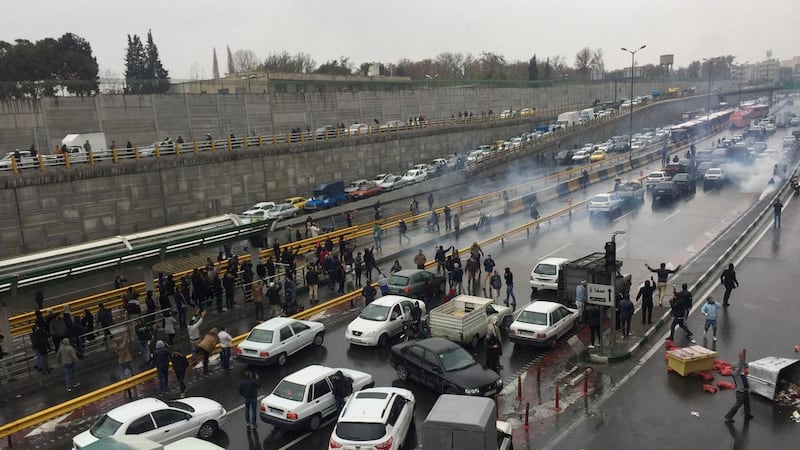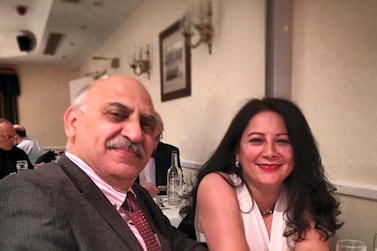Iran's security forces used torture to extract confessions and put hundreds of people in jail after a sweeping operation against protests last year, Amnesty International said on Wednesday.
Demonstrations erupted across Iran in November 2019 after a major increase in petrol prices, but they were put down by security forces with mass arrests amid a near-total internet ban.
Amnesty said it gathered dozens of testimonies from the 7,000 people it estimated were arrested, which included children as young as 10.
The accounts reveal "a catalogue of shocking human rights breaches, including arbitrary detention, enforced disappearance, torture and other ill-treatment", the human rights group said.
Those arrested were tortured into "confessions" of being involved in the protests, membership of opposition groups or contact with foreign governments and media, Amnesty said.
Torture and other ill-treatment by police, intelligence operatives and others "was widespread", it said.
Amnesty said it had recorded the names of more than 500 people "subjected to unfair criminal proceedings in connection with the protests".
"Hundreds have since been sentenced to prison terms and flogging, and several to the death penalty, following grossly unfair trials that were presided over by biased judges behind closed doors," Amnesty said.
Prison sentences ranged from one month to 10 years, the report said.
Torture techniques included water boarding, beating, electric shocks, pepper spray to genitals, sexual violence, mock executions and pulling out finger and toe nails, Amnesty reported.
"It felt like my entire body was being pierced with millions of needles," one man tortured with electricity told Amnesty.
Another said he was suspended by his hands and feet from a pole in a method called "chicken kebab" by his interrogators, the report said.
In May, Iran's Interior Minister suggested that up to 225 people were killed during the November protests, when petrol pumps were torched, police stations attacked and shops looted.
A group of independent UN rights experts said in December that more than 400 people could have been killed in the crackdown, based on unconfirmed reports.
Iran blamed the violence that broke out during the protests on "thugs" backed by its foes the US, Israel and Saudi Arabia.







